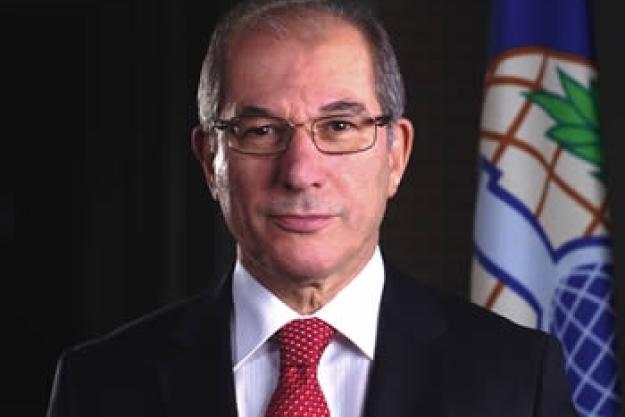
OPCW Director-General Ahmet Üzümcü
THE HAGUE, Netherlands — 26 July 2017 — The Director-General of the Organisation for the Prohibition of Chemical Weapons (OPCW), Ambassador Ahmet Üzümcü, visited Australia on 24 and 25 July. In Canberra, he met with the Secretary of Department of Foreign Affairs and Trade, Ms Frances Adamson, and briefed her about the Organisation’s priority activities, including those concerning the Syrian Arab Republic.
The Director-General further briefed senior officials from across a number of agencies on current issues and exchanged views with them at a roundtable at the Department of Foreign Affairs and Trade. He also participated at two other roundtables at the Australian National University and at the Australian Strategic Policy Institute (ASPI) where he shared the strategic, forward-looking approach to dealing with immediate and future challenges facing the OPCW and Member States.
The Director-General in his keynote address at the 17th Asian Chemical Congress, incorporating the 19th General Assembly of Federation of Asian Chemical Societies (FACS), on 25 July in Melbourne stated: “Every science holds the potential for great progress, and great destruction. One need only reflect on the brutality unleased by chemical weapons to confront this difficult truth.”
The Director-General insisted that the aspiration to apply chemistry for the good of mankind and further sustainable development is “noble and achievable” and reminded audiences that this responsibility rests not only with governments, but also with industry and civil society.
At the Australian Institute of International Affairs in Melbourne on 25 July, he highlighted the strength of the global ban against chemical weapons and cautioned: “Although norms are powerful, they can change. In this case of chemical weapons, we must never allow this to happen”.
Ambassador Üzümcü also paid a visit to the Australian War Memorial and the Defence Science and Technology Group (DST Group) for a discussion about chemical weapons and the chemical Weapons Convention, combined with a tour of the Protective Purposes Facility and Analytical Laboratory respectively.
During his visit, the Director-General also met with Assistant Secretary, Australian Safeguards and Non-proliferation Office (ASNO), Dr John Kalish; and various Australian academics and scientists.
Background
Australia ratified the CWC in 1997 and has been an active participant in OPCW’s activities, as well as supporter of the Convention though both financial and in-kind contributions, including towards the destruction of the declared Syrian chemical weapons programme. Australia has also financially supported the work of OPCW’s Scientific Advisory Board.
As the implementing body for the Chemical Weapons Convention, the OPCW oversees the global endeavour to permanently eliminate chemical weapons. Since the Convention’s entry into force in 1997 – with its 192 States Parties – it is the most successful disarmament treaty eliminating an entire class of weapons of mass destruction.
Ninety-five per cent of all chemical weapon stockpiles declared by possessor States have been destroyed under OPCW verification. For its extensive efforts in eliminating chemical weapons, the OPCW received the 2013 Nobel Prize for Peace.
More Information
- The Chemical Weapons Convention: A Model of International Solidarity and the Power of a Universal Ideal, Remarks by Ambassador Ahmet Üzümcü, OPCW Director-General, Australian Institute for International Affairs, Melbourne, 25 July 2017
- Interview of the OPCW Director-General for ABC News TV Network Australia (26 July 2017)
- The 17th Asian Chemical Congress Keynote Address by Ambassador Ahmet Üzümcü, OPCW Director-General Melbourne, Australia 25 July 2017
- OPCW Fact Sheets
